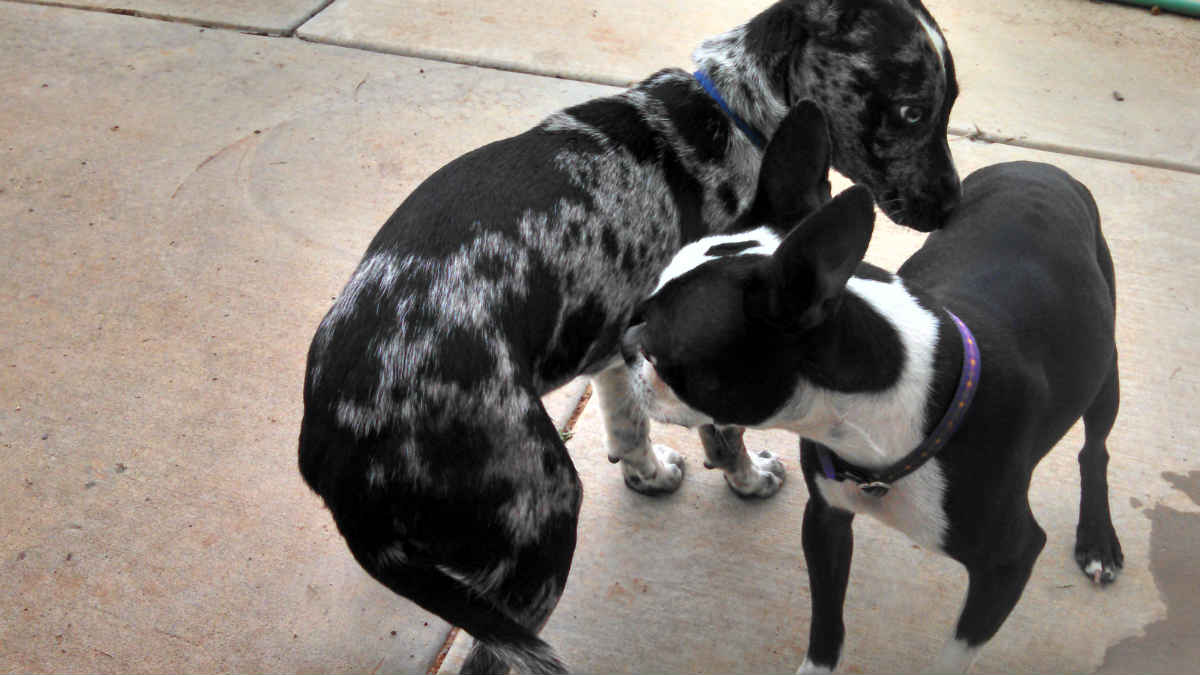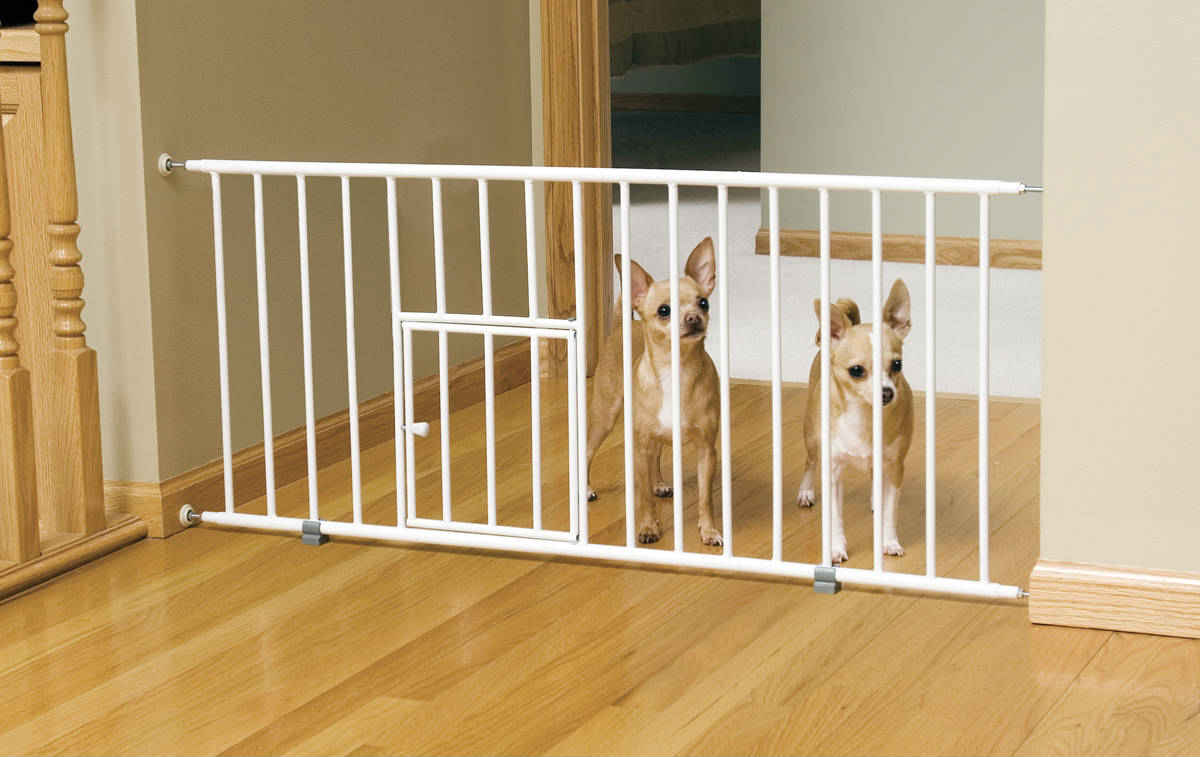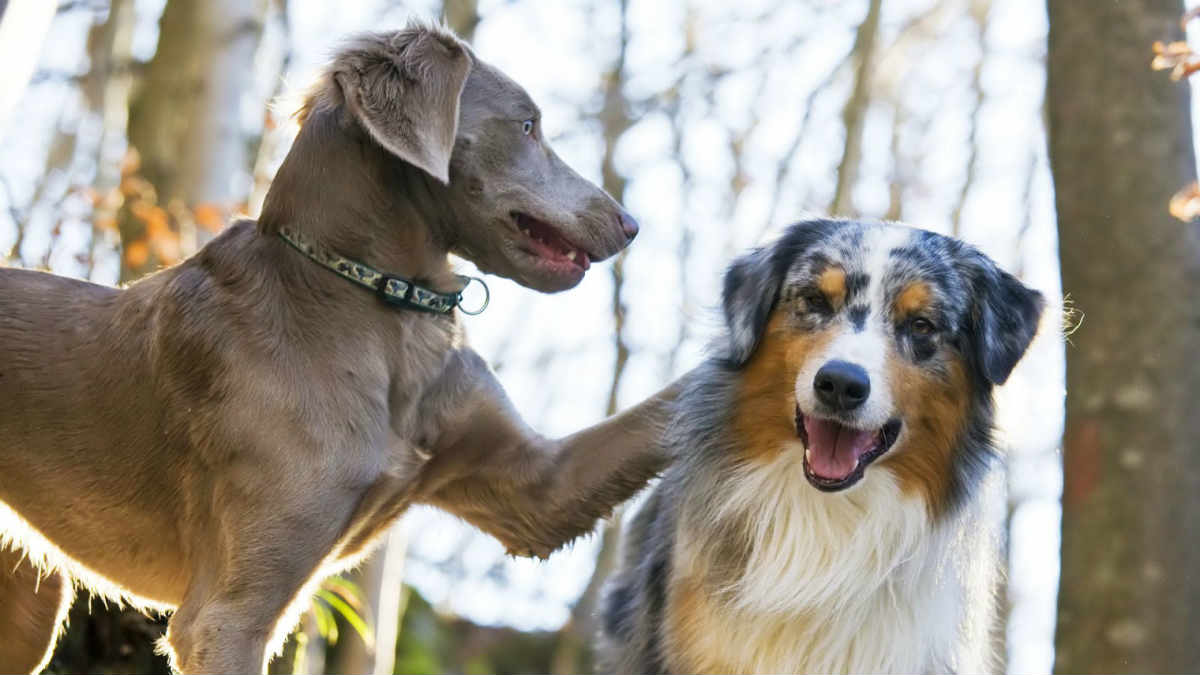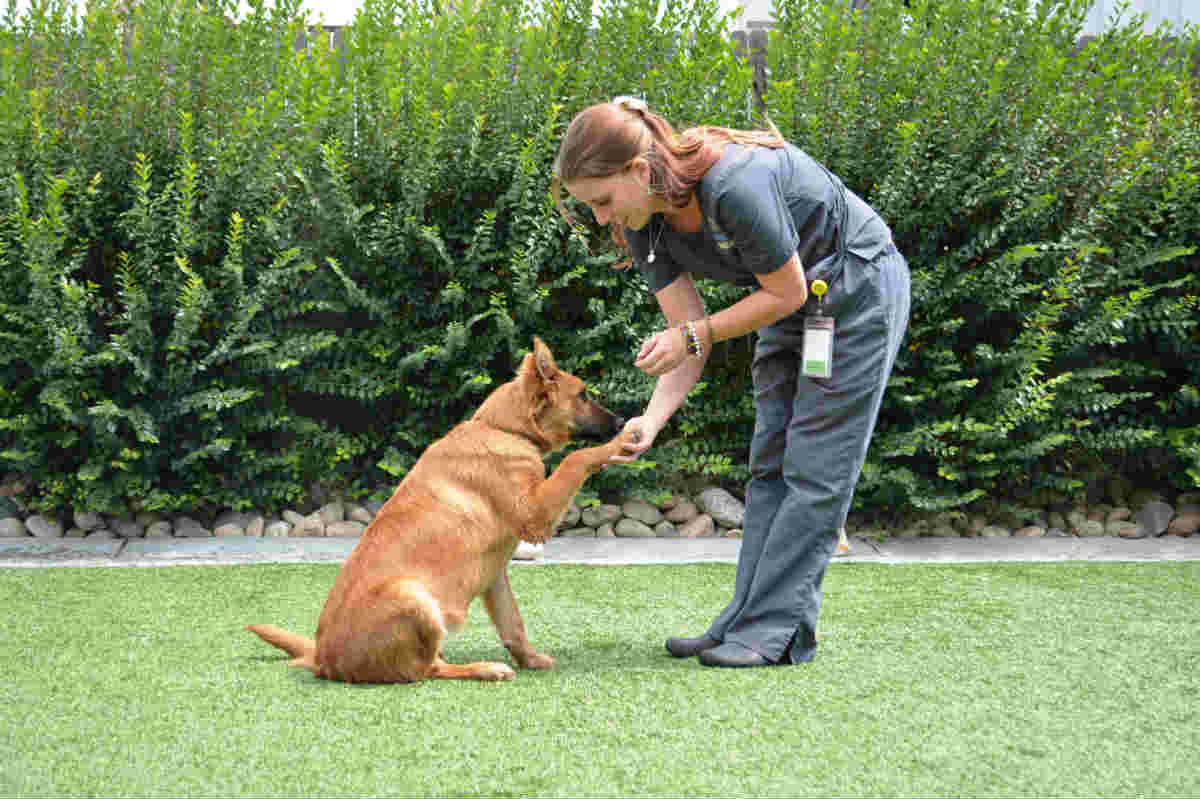How To Get My Dogs To Get Along
We often heard people say that dogs need to socialise. Indeed, dogs need to socialise not just with humans, but also with other dogs. Socialising with other dogs is considered important as it is not possible for your dog to completely avoid contact with other dogs.
When your are walking your dog, there may be a coincidence that you meet another dog owner who is walking his or her dog on the same street. Your friends may come to visit you along with his or her dog. Most of the dog owners hope their dogs can get along well with other dogs, but it doesn't always work out that way. Dog to dog encounters always ended up with a fight or displaying aggressive behaviours towards one another.
Fortunately, dogs are social animals. This means they are motivated to keep contact with familiar individuals or other animals and try to avoid isolation. Two dogs can become friends easily with a little help from you. Here are some tips for you to encourage bonding of two dogs.
1.Introduce the dogs to each other properly
One big mistake that is often made by dog owners when they are introducing two dogs to each other is by putting them together in the same compound and let them bond on their own. Maybe it'll work and maybe it won't. There are plenty of ways to introduce your dog to a new dog. One of the ways is through a long walk. If you suddenly bring a new dog to your home, your current dog may see it as an invasion to its territory and behave aggressively towards the new dog.
By walking both of them together in a neutral territory, you allow them to sniff and greet each other. However, some precautions step is necessary. Each dogs should be leashed and walked by a different person. You shouldn't let them walk too close to each other at first as they may feel threatened by other dog's presence. If you see signs of tension between the dogs, separate them at once. Once the two dogs seem tolerant of each other, it is time to bring them home.

2.Keep the dogs separated at first
Many people tend to think that when dogs interact more with each other, the faster they can get along. Thus, they force the dogs to share the same dog bowl, play with the same toys and sleep in the same den. Unfortunately, that's not going work. It is safe to assume that every dog needs some alone time, particularly for two dogs that aren't familiar with each other. Give each dog its own room and space where it won't feel threatened by the other dog's presence .
Keep the dogs separated when they are eating. You may feed them at different corners or in a different room. Training should be done separately too. By the time you feel that both dogs are getting used to each other and doesn't show any aggressive or hostile behaviour towards one another, separation is not necessary anymore. The baby gate may do wonder in helping you to separate the dogs. It allows the dogs to see each other but doesn't allow them access to one another.

3.Establish dominance
Dogs are pack animals by nature. Every animal pack has a leader, an alpha animal who dominates and leads the other members in the pack. As Cesar Millan, a world renowned dog expert says in his article Dog Pack Hierarcy, "They are happiest when they have this structure because the followers want to be told what to do and know what the leaders expect of them."
Therefore, every dog pack must have a leader. Dogs will instinctively compete to become the alpha in the pack. This is obvious when a new dog is being introduced to the pack. The interesting thing is you and your family are also considered part of the pack. Hence, what you need to is to seize the alpha position in the pack and dominate the pack. If your dogs see you as leader, they won't see each other as rivals in the pack and could possibly get along well.

4.Supervise all interactions between the dogs
When the dogs are allowed to interact freely, make sure you keep an eye on them. Just as you know. Dogs won't become friends instantly. It usually take several months for two newly acquainted dogs to be comfortable with each other. Supervision is absolutely necessary because a fight might occur if these dogs are left alone.

5.Obedience training
There are times that your dog can get into a fight with a stranger or an unknown dog. Obedience training can let you have better control of your dog and thus reduce the chance of a fight happening. Basic obedience commands like 'sit', 'stay' or 'down' are essential. Let's take 'stay' for example, it is a great self-control exercise. By using this command, you can make your dog sit still rather than go chasing or distracted by another dog. Obedience training is just like behavioural training, it takes time and effort. But the end result is promising.
 Image credit: Advanced animal care
Image credit: Advanced animal care
6.Watch for body posture
Watch carefully for body posture or body language in dogs that indicate defensive or aggressive behaviour, including teeth baring, staring, stiff tail, ears forward, hair raised on the dog's back and etc. If you see these signs on the dogs during the interaction, intervene the interaction and separate them immediately or you will get yourself in trouble. You can only allow them to interact again after they are calm and relaxed. Watch for the body posture changes to decide whether they are calm or not.
 Image credit: Lili Chin
Image credit: Lili Chin
7.Give each dog equal attention
If you are adopting a second dog, give both the existing dog and the new dog equal attention every day. If you are giving more attention to the new dog in the house, the existing dog may feel neglected and this will lead to a tense relationship between the two dogs. Allocate equal playing time, walking time and training time for both dogs.
8. Be patient
How much time do you need to become friendly with a stranger? Within a few hours? A few months perhaps? Time is a factor, but it also depends on the personalities. If you and the person you met are both an outgoing person, you two can be friends in no time.
Dogs are just like us. Some dogs can become fast friends within a few hours, but some dogs may never get along. It could be due to clash in personalities. Some dogs may be active and lively ,while the others may be quiet and antisocial. You can't just expect two dogs that have different personalities to get along without giving them time to work out the relationship. Be patient and let the dogs take time getting to know each other.

How To Get My Dogs To Get Along
Source: https://www.petbacker.com/blog/how-to/tips-on-how-to-make-two-dogs-become-friends
Posted by: wesleyhiscired.blogspot.com

0 Response to "How To Get My Dogs To Get Along"
Post a Comment